In this blog post, I share my journey through the project development module, highlighting key aspects of research, design, and branding that have shaped my evolving idea – a van racking online configurator.
Thorough Research and Competitor Analysis: I embarked on a comprehensive research journey, delving into UX/UI design and competitor analysis. While online sources provided valuable insights, I acknowledge the potential depth offered by books and academic journals. Despite their potential obsolescence, tapping into these resources could have enriched my understanding further. Additionally, I recognise the opportunity to collect more user-centric data through surveys and questionnaires, a step that could enhance the real-world applicability of my project.
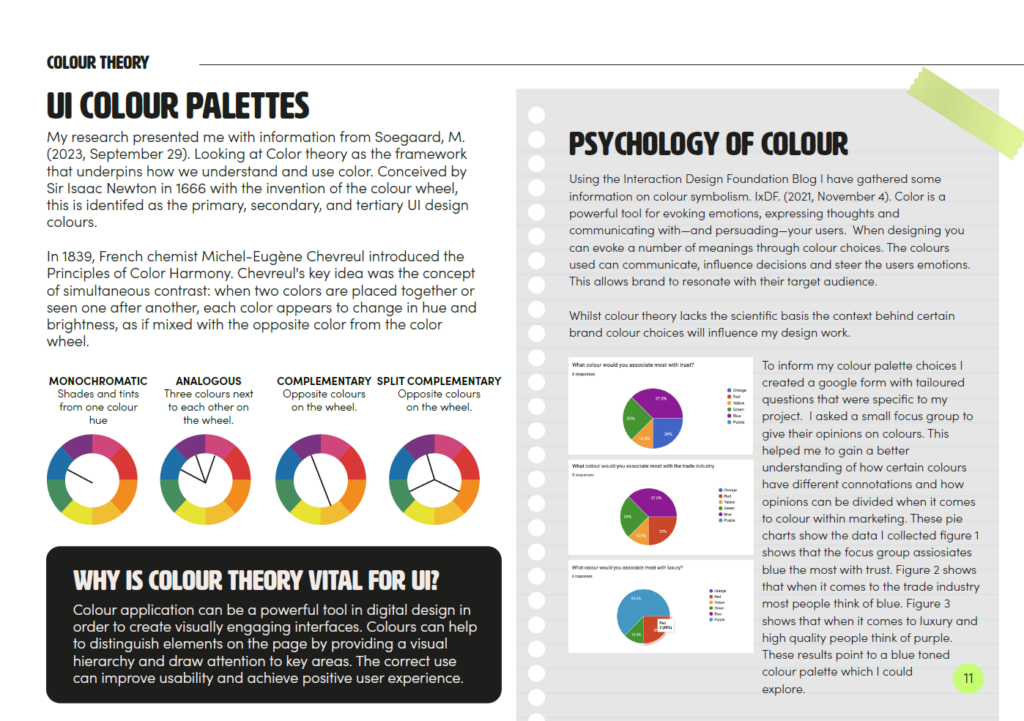
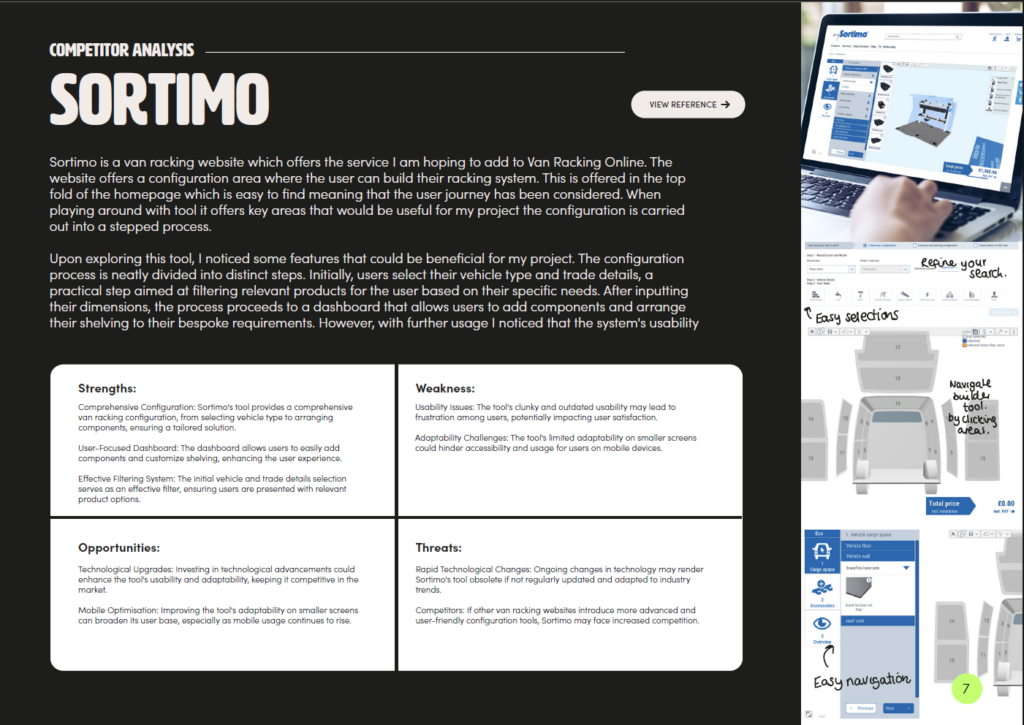
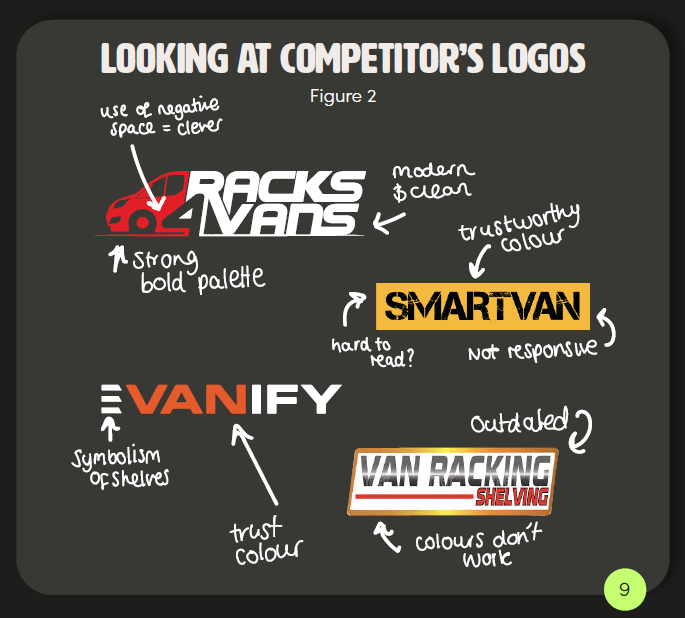
Brand Identity Exploration: A pivotal aspect of my project involved researching and crafting a compelling brand identity. Exploring color schemes, typography, and logo development equipped me with the tools to establish a cohesive brand. Moving forward, collaboration with colleagues to refine logo concepts and creating a polished brand proposal will contribute to a professional and recognisable brand image.
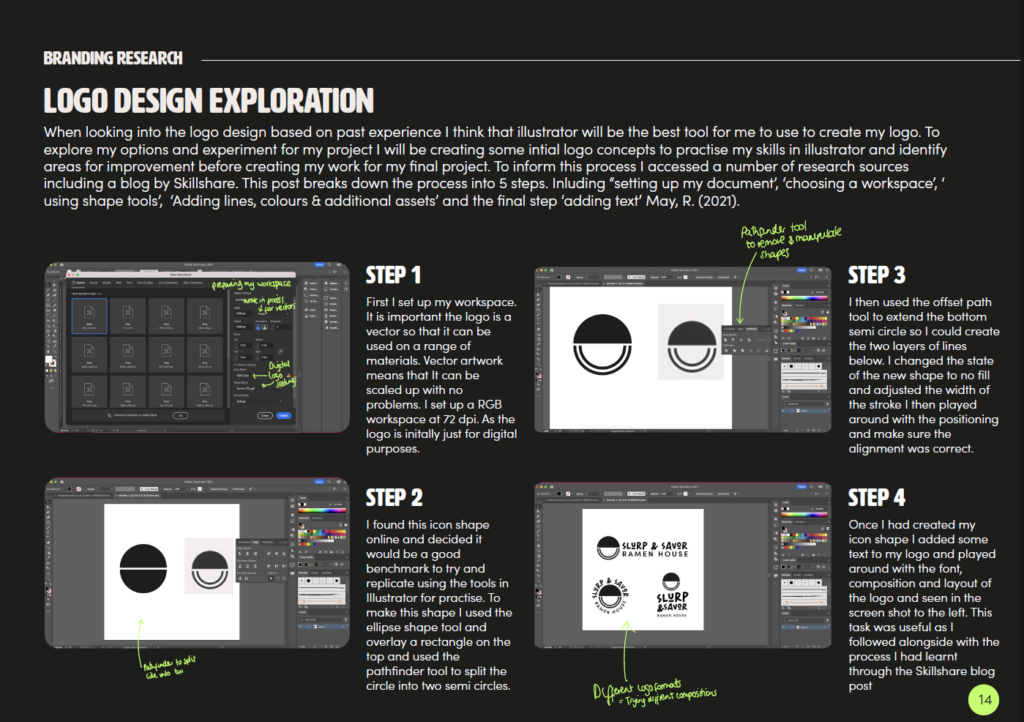
Balancing Skill Development and Research: Throughout the project, I balanced skill development with thorough research. Delving into the psychology behind color choices and conducting a color survey using Google Forms added depth to my understanding. The exploration of logo creation using Adobe Illustrator further honed my skills, preparing me for the upcoming project commercial realisation module.
Acknowledging Opportunities for Growth: Whilst I am pleased with the progress made, I acknowledge the potential to broaden the scope of my research efforts. The realisation that more time dedicated to ideation and concept development could have further refined my ideas emphasises the importance of time allocation in future modules.
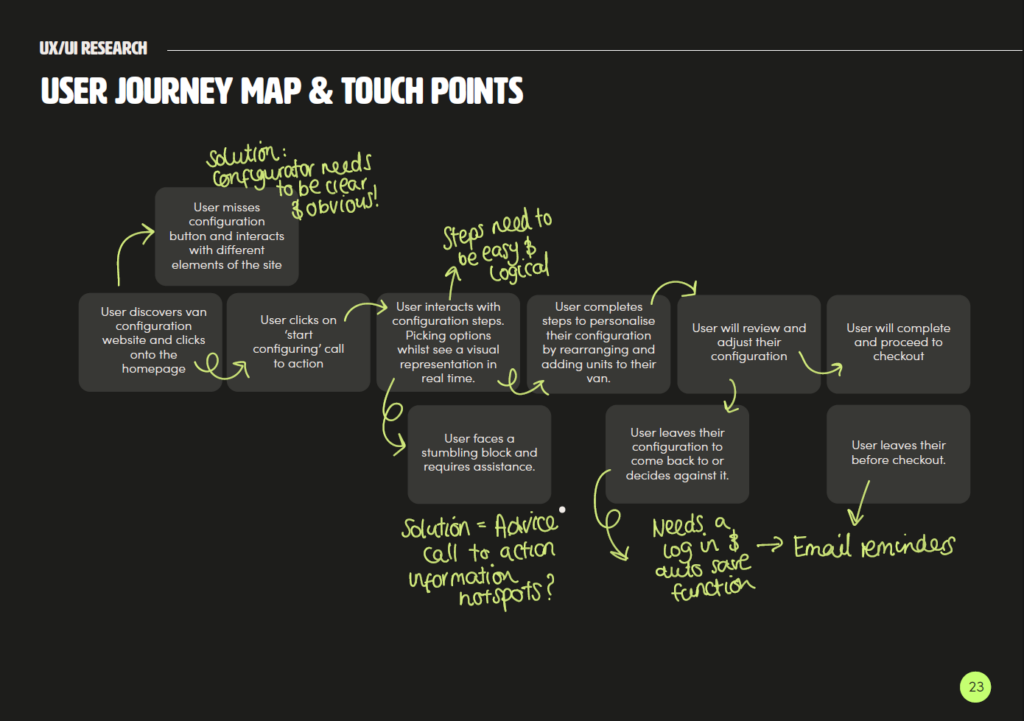
↑ The provided screenshot above illustrates a segment of my project development document, specifically focusing on the exploration of a user journey map and potential touch points. While this preliminary analysis lays a foundation, I recognise that real-world testing with actual users could significantly enhance the depth and reliability of these findings. Given more time, my approach would involve engaging potential users through direct interaction and feedback sessions. This shift from hypothetical to real-world testing aims to gather authentic insights, ensuring the project’s alignment with user needs and expectations.
Confidence in Project Success: In conclusion, the project development module has equipped me with the knowledge, skills, and processes needed for the van racking online configurator. The commitment to user experience, skill development, and adaptability positions the project as a valuable tool for van owners seeking custom shelving solutions. The blog post encapsulates the journey from research to implementation, setting a solid foundation for continued growth in the next modules.
Reflecting on the Project Development Module:
Throughout the project development module, my journey unfolded through crucial phases of research, design, and branding exploration, all converging toward the vision of a van racking online configuration.
Successes & Achievements:
My project development was effective due to a thorough research strategy that included concepts from competitor analysis and UX/UI design. I learned a lot about the early stages of a branding project by analysing rivals, watching tutorials, and researching colour theory, the psychology of UX/UI design decisions, and how they effect the user. Focusing on the integration of skill development, such as in-depth explorations of colour psychology and hands-on logo creation with Adobe Illustrator, prepared me well for the approaching commercial realisation module.
Opportunities for Growth:
While progression of my project was evident, I recognise of opportunities for growth. This incluces expanding the research scope, particularly through user-centric data collection via surveys. Furthermore, understanding the importance of dedicating more time to ideation and concept development emphasises the need for strategic time allocation in future modules.Finally, the project development module has instilled confidence in the success of the van racking online configurator, laying the groundwork for future module development.